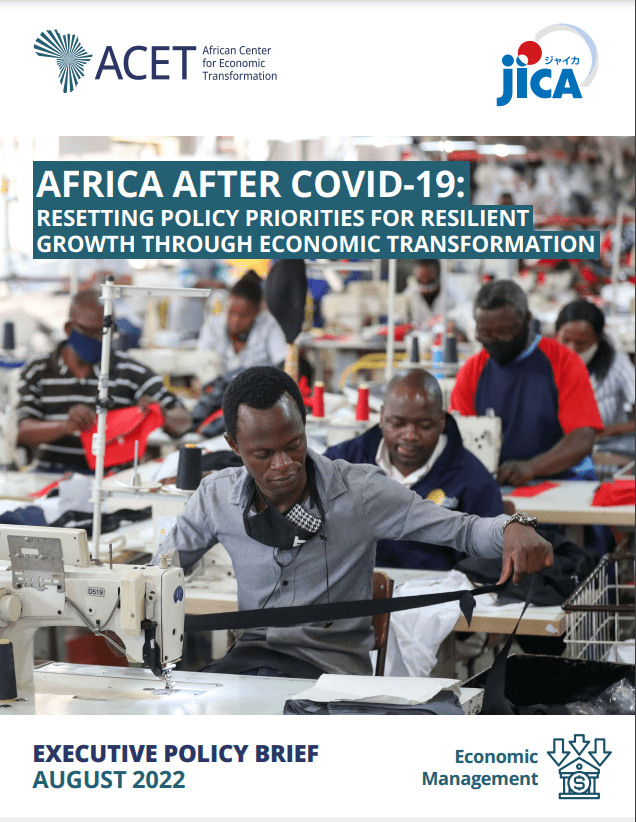Given today’s global economy, geopolitics, and shifting trends, the policy approaches in most African countries are not sufficient to ensure the continent’s long-term development or enable countries to withstand shocks—as the severe impacts of the COVID-19 pandemic proved. Several other facts concerning Africa’s present reality underscore the need for a shift in policy priorities.
Growth has not been sustained. Over the last two decades, Africa has accelerated its pursuit of sustainable, inclusive, and equitable development. While gains were made, growth buckled under the impact of the 2007-2008 Global Financial Crisis (GFC) and the end of the commodities boom, or “super cycle,” in 2014-2015. The historical structural weaknesses of African economies resurfaced— underscoring the lack of progress on economic transformation.
Development targets are off track. After most countries fell short of expectations for the landmark Millennium Development Goals (MDGs), UN member states adopted the Sustainable Development Goals (SDGs) in September 2015. The 17 SDGs were notable for underpinning poverty reduction goals with economic transformation strategies. However, as UN Secretary-General António Guterres stated in 2021, the SDGs “were already off track even before COVID-19 emerged. Progress had been made … but not enough to achieve the goals by 2030.”
Unfolding “megatrends” pose long-term challenges. Ultimately, the success or failure of African countries to transform depends on how governments respond to an increasing number of critical challenges that transcend borders: climate change, population growth and demographic transition, a surge in technological innovations, and of course the COVID-19 pandemic and its aftermath. These megatrends must be faced against the background of increasing global policy isolationism, trade barriers, social inequality and insecurity, and more.
Despite the blueprint for development successes provided by the “Asian tigers” in the 20th century, Africa still finds it hard to move past its reliance on primary commodity production and export with minimum value addition. Moreover, the growing reliance on natural resource extraction reinforces the jobless growth that has characterized past development efforts and makes it difficult to build productive capacity of domestic firms or to expand employment in manufacturing. Focusing on these patterns of growth leaves African economies vulnerable to external shocks like COVID-19 that easily reverse gains made prior to their occurrence.
As countries look to recover and rebuild from the pandemic, the urgency to prioritize policies that will promote resilient growth through economic transformation is apparent.
This policy brief is derived from the August 2022 study, Transforming and Building Resilient Economies in Africa: Resetting Priorities for the Policy Agenda in the Post-COVID-19 Era, produced by ACET and facilitated by the Japan International Cooperation Agency (JICA).
Download Policy Brief View Policy Brief




0 Comments